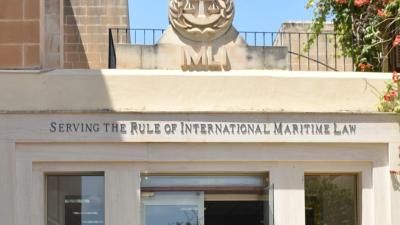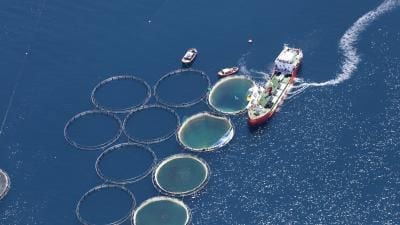
New major grant to improve safety across the maritime industry
Lloyd’s Register Foundation has awarded £1,000,000 in grant funding to the IMLI to support its work in the adoption and effective implementation of maritime legislation.
This page is approximately a 3 minute read
This page was published on

Queen Mary University of London has secured a £998,330 grant from Lloyd’s Register Foundation to lead a pioneering research project aimed at improving the safety, resilience, and sustainability of offshore aquaculture systems.
As global demand for seafood continues to rise, offshore fish farming offers a promising way to meet that need without further depleting wild fish stocks. Compared to nearshore operations, offshore sites benefit from deeper, cleaner waters and stronger currents, reducing pollution and disease risks but these benefits can come with serious engineering and safety challenges.
Offshore aquaculture facilities are exposed to harsh marine conditions, including high winds, strong waves, and powerful currents. Traditional fish cages, designed for calmer waters, often lack the durability needed for open-sea deployment. Failures can lead to fish escapes, economic losses, and increased risks to worker safety. Recent studies show that around 80% of offshore farming incidents stem from infrastructure failures, while injury rates for offshore workers are significantly higher than those in land-based fisheries.
With support from Lloyd’s Register Foundation, the university’s research team will develop storm-resistant aquaculture systems and service vessels. Using advanced fluid-structure interaction modelling, marine design, and physical testing, the project aims to improve how offshore cages and vessels are built and operated so that they can withstand extreme conditions while keeping workers safe.
To deliver this research, Queen Mary University of London’s team will collaborate with the universities of National Technical University of Athens (Greece), the Indian Institute of Technology Madras (India) together with industry partners AKVA group (Norway), Griffon Marine (UK), BFP-Tech (Greece), Astra Ryba (India), and in the educational route also with Wenzhou Vocational College of Science and Technology and WFMD (China).
Olivia Swift, Head of Maritime Systems at Lloyd’s Register Foundation said: “Offshore aquaculture has enormous potential to support global food security, but only if it’s safe for workers and resilient to the sea’s toughest conditions. This project reflects our mission to engineer a safer world by advancing maritime systems that protect people, preserve ecosystems, and enable sustainable growth.”
Dr Eldad Avital, who is leading the project for Queen Mary University of London said: “This project will advance the engineering of offshore aquaculture by developing storm-resistant cages and vessels capable of withstanding extreme sea conditions. By integrating renewable energy systems and data-driven design, we aim to create safer, more resilient aquaculture infrastructure while training the next generation of engineers and professionals to lead sustainable offshore operations.”
Over the next five years, the initiative will focus on four interconnected priorities: improving the safety and durability of offshore aquaculture infrastructure, enhancing operational efficiency, advancing sustainability, and investing in workforce development. This includes strengthening the structural resilience of aquaculture cages and service vessels to withstand wave heights of five metres or more, reducing biofouling and maintenance demands through advanced materials and cleaning strategies, and integrating Wave Energy Converters (WECs) into aquaculture farms to reduce reliance on fossil fuels. At the heart of the programme is a commitment to people—training at least 200 offshore aquaculture professionals and fishers in safe, sustainable practices that support long-term sector resilience.
To deliver these outcomes, the project will develop and test a storm-resistant cage prototype and redesign working vessels between 8 and 15 metres in length, using high-fidelity simulations, lab-scale experiments, and field validation, with guidelines published by Year 5. It will target a 30% reduction in biofouling through anti-fouling materials and innovative cleaning techniques, evaluated via multi-year field trials. A WEC-powered aquaculture system capable of generating at least 5 kW of renewable energy will be designed and validated by Year 4. Alongside this, safety and sustainability training will be delivered to a minimum of 200 professionals, with performance benchmarks met by the end of the initiative.
This initiative marks a major step toward unlocking the full potential of offshore aquaculture - combining cutting-edge engineering with a commitment to safety, sustainability, and sector-wide capacity building.